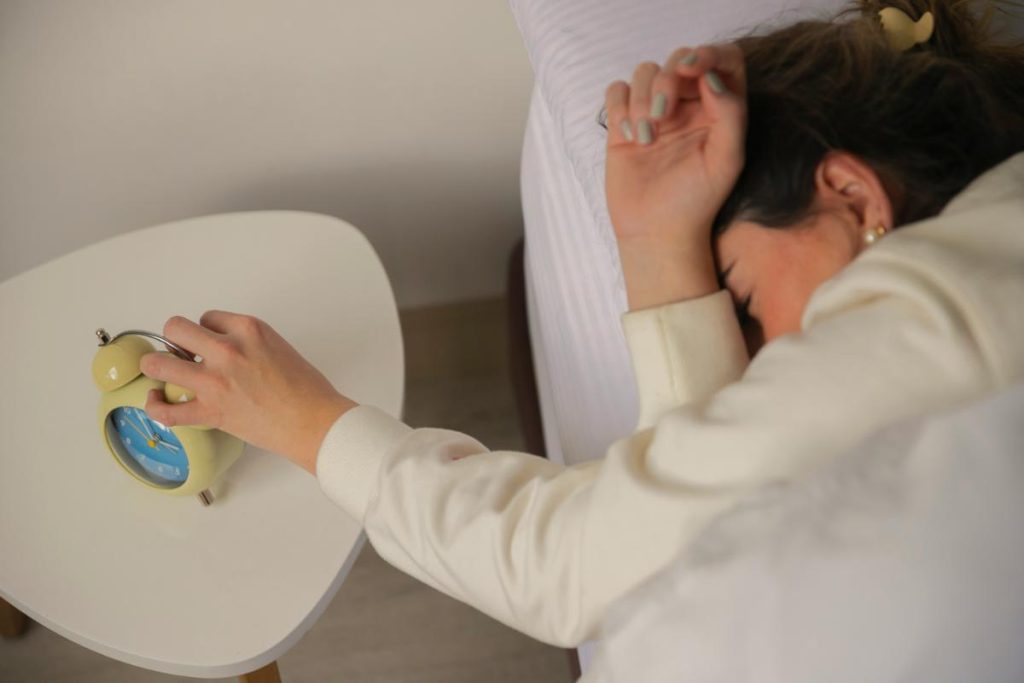I used to set my alarm half an hour before I needed to wake up. Why? I wanted some extra time to wake up every morning. Hitting that snooze button felt delicious—like I was giving myself a little treat for every 5 or 10 minutes I allowed myself to sleep.
The thing is, it didn’t feel so great by the time I actually dragged myself out of bed. In fact, I often felt worse than I did when the first alarm went off. What happened there?

I fell victim to sleep inertia. Chances are, you’re a victim, too, but it doesn’t have to be that way. By learning more about why the snooze button is bad for you and how to fight the urge to use it, you can get a more productive start to your day.
What is Sleep Inertia?
Sleep inertia is that horrible groggy, disoriented feeling you have when you wake up from a deep sleep. You may have experienced it if you’ve ever been woken up suddenly in the middle of the night. You’re not quite sure where you are or what’s happening.
You shouldn’t feel that way first thing in the morning, though. And in most cases, you won’t—if you stop hitting that darn snooze button. When you begin snoozing again, you don’t pick up where you left off. A new sleep cycle begins that you don’t have time to finish. Instead of feeling refreshed after those few extra minutes of sleep, you’ve made your morning much more difficult.
How Does It Affect Your Productivity?
Depending on the study, sleep inertia lasts anywhere from a few minutes to four hours. Four hours! Personally, I felt the effects for a couple of hours after getting out of bed. In general, you’ll feel more tired throughout the day. You’ll be less alert, and therefore, less productive. Sleep inertia slows down your capacity for making decisions, impairs your memory, and hurts your performance on critical thinking tasks.
If you think a cup of coffee or an energy drink will help, think again. It can take a couple of hours to shake off the grogginess.
How Do You Fight the Urge to Snooze?
In an ideal world, you’d be able to wake up naturally according to your body’s own natural rhythms. You would go to bed when night falls and wake up to sunshine and chirping birds. Obviously, you don’t live in an ideal world. Jobs, social responsibilities, and kids who are all too eager to get the day started wake you up long before you’re ready.
So, as Grandma used to say, “You have to make do.” In other words, you have to work with your circumstances to make practical changes where you can.
Try one or more of these tips to improve your sleep and wake cycles:
- Stop using electronics 60-90 minutes before bedtime. This minimizes blue light stimulation to the brain to help you wind down.
- Go to bed 30 minutes earlier. If that isn’t enough, try 45 minutes, or even 60.
- Invest in a quality mattress like a Beautyrest Black mattress, so you know that when you do first wake in the morning you’ll have had the best quality sleep possible throughout the night.
- Put your alarm clock out of reach. You’re less likely to hit the snooze button if it involves walking back and forth to your bed to get a few extra zzz’s.
- Be ready for the morning. Lay out your clothes, pack lunches, and get your to-do list ready the night before. Nothing feels better than jumping right into the day because you’re already prepared.
- Start the day with a task you like to help you look forward to getting out of bed.
By getting rid of your snooze-button habit and making a few positive changes to your routine, you may find that you’re more refreshed, more alert, and more productive.
Are you a chronic snoozer? What steps are you taking to improve your sleep and productivity?
This post originally appeared on ProductiveWAHM.
For more productivity tips, follow the Work at Home Productivity Tips series!
